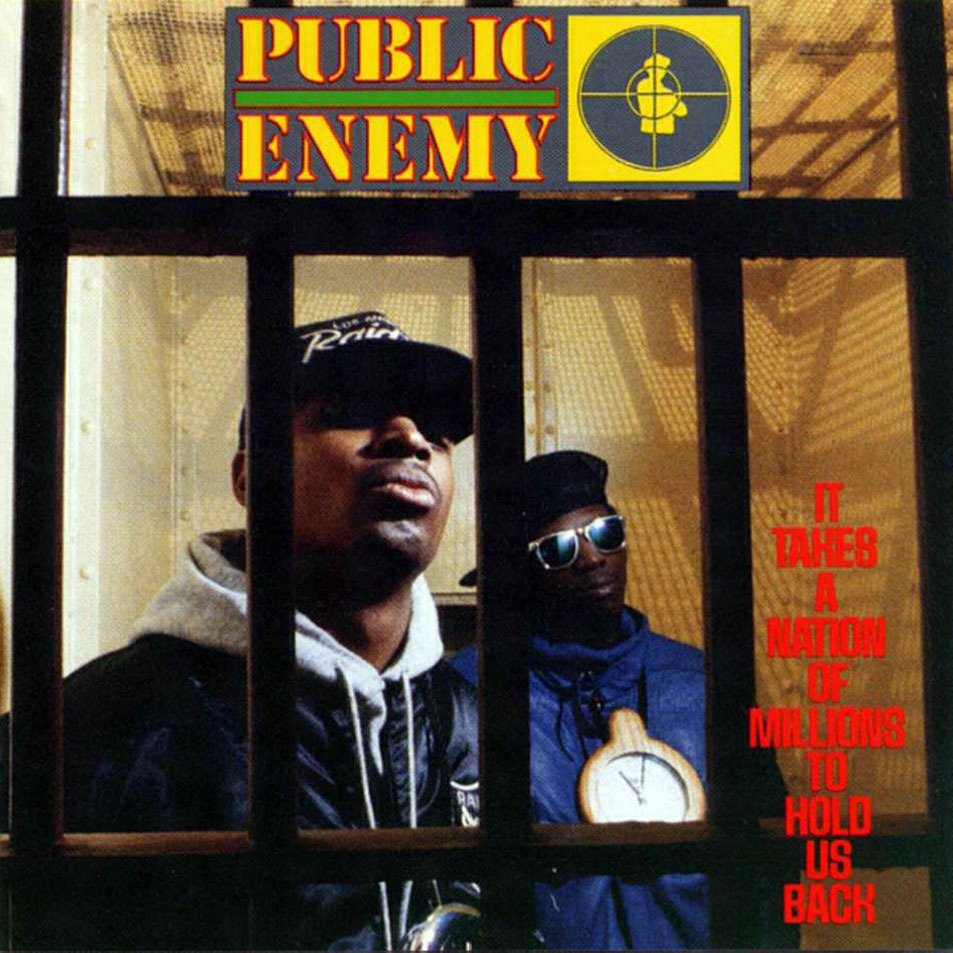On this day in 1988 Public Enemy released It Takes A Nation of Millions To Hold Us Back, an album that would eventually be regarded as one of the most influential and important albums of all time.
Recorded under the working title “Countdown to Armageddon,” It Takes A Nation of Millions to Hold Us Back began production with the goal of creating hip hop’s equivalent to Marvin Gaye’s legendary “What’s Going On” concept album — soulful, technically innovative, and politically conscious.
“Years of saved-up ideas were compiled into one focused aural missile,” Chuck said of the album. Production of the album, headed up by Hank Shocklee, Eric “Vietnam” Sadler, and the rest of The Bomb Squad crew, was inspired by the aggressive, politically charged lyrics Chuck D wrote, and in turn, Chuck was inspired by the dense, innovative sounds Shocklee & the Bomb Squad were creating. “We actually had an intricate way of developing sound, arranging the sound. We had musicians like Eric Sadler…Hank Shocklee, the Phil Spector of hip hop. You’ve got to give the credit as it’s due, if Phil Spector has the Wall of Sound, Hank Shocklee has the Wall of Noise.” Chuck told The Quietus in 2008.
The album was extremely well received, both critically and commercially, at the time of its release, but in the almost three decades since then, It Takes A Nation of Millions To Hold Us Back has built up a near mythic reputation as one of hip hop’s most important works. Credited with inspiring future generations of socially conscious artists, the album has received perfect review scores from outlets like Pitchfork and NME, and is frequently cited by many critics and other musicians, including Nirvana’s Kurt Cobain, as one of their favorite albums — in any genre — of all time.
The album’s themes of black empowerment and fighting back against institutionalized white supremacy and commercialism are just as relevant now as they were in 1988. “It amazed me that a lot of people who have gravitated to the album weren’t even born when it was recorded,” Chuck said told Metro in 2009 in regards to the album’s continued ability to resonate with new audiences.
(Via PublicEnemy.com)
